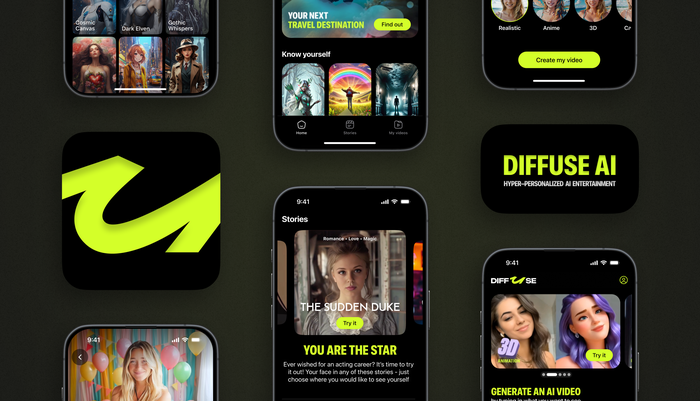Data roars, data scores: How England’s Lionesses prep for the World Cup from anywhere with the cloud

Paola Olivari
Director, Data and Analytics, Google Cloud
The Football Association uses analytics and AI tools to track millions of data points on Lioness team players, helping guide both training and strategy.
The Women’s World Cup kicks off in Australia at the end of this week, and the Lionesses, England’s national team, will be coming into the tournament hot, with many players having just wrapped up their final matches in the Barclays Women’s Super League.
With less than two months between those club fixtures and the biggest tournament in the international calendar, England’s Football Association was faced with a short window to get the Lionesses ready for their quadrennial hunt.
In order to excel, each Lioness needs a tailored training program focused on their individual physical and mental requirements. Developing such training regimens is a complex task even in normal circumstances. They require coaching staff to make a series of important decisions, for which they need time and, crucially, detailed player information.
Both pose challenges. Not only is time in short supply, but The FA doesn’t have day-to-day contact with its players except at international camps, making data collection difficult.
Enter the Performance Insights team. Launched in 2020 by The FA’s Physical Performance, Medicine, and Nutrition department, the insights team’s goal was to develop tools that help coaching staff make the right decisions in the shortest time possible.
With players scattered around the UK and beyond, and coaches in need of loads of real-time data, it’s the kind of technical challenge traditional IT would have struggled to keep up with. To do this, the team turned to Google Cloud, an established partner of The FA, to gain better insights, faster.

Fast forward to the preparation window for the World Cup in Australia, and the team is in full flight, using the cloud to generate detailed reports about each player’s individual needs straight after each training session. Whether players were on the same pitch practicing or not, the national coaching staff have been able to make faster, more informed decisions either way, helping give the Lionesses the best chance of success in Australia.
From data to decisions
The training and game-time choices coaches will make rely partly on the reports provided by the Performance Insights team. These reports are based on a veritable mountain of data coming from a variety of sources.
One source is detailed “match event” data — every pass made, tackle landed, shot taken, goal scored, and more. These are created by tagging match videos to each player in the squad. Over the course of a tournament, these videos add a whopping 220,000 data points across The FA’s database.
The second source is captured during training. All players wear GPS trackers, which in total output around 1.3 million lines of squad data per session.
If collecting all that data sounds harder than getting a shot past one of England’s star keepers, imagine turning it all into meaningful insights for the players and coaches.
And then there’s the event data provided by the players’ clubs, which allows the team to compare what each Lioness has been exposed to over the course of the season — measured by the volume and intensity of games they’ve played — and compare that with what they’re expected to do at the tournament.
The fourth and final source is self-reported wellness data for every player. During international windows, roughly 20 data points are captured per player per day, with another 30 per player per day engineered from those 20 when combined with other data sources.
If collecting all that data sounds harder than getting a shot past one of England’s star keepers, imagine turning it all into meaningful insights for the players and coaches.
For this, the Lionesses rely on BigQuery, Google Cloud’s enterprise data warehouse. BigQuery acts as a storage and analytics layer, extracting actionable insights and delivering them as accessible visual reports in a matter of minutes.


These reports help the coaching staff decide how best to support each individual player and maximize the physical and mental improvements they can make in their limited downtime between games. BigQuery gives the coaches the tools to visualize and understand individual players’ readiness at a glance.
The reports can also give detailed information on the different demands of each position, enabling the coaching staff to better prepare players for the intensity they are likely to experience during the tournament.
Knowing the score
By automating previously laborious manual tasks, The FA’s new cloud tools mean coaches have more time. That’s more time to work on tactics, and more time to spend on ensuring the players’ physical and mental health is in the right place to give them the greatest chance of success.
The speed at which BigQuery operates doesn’t mean what it’s doing is simple, though. To the contrary, the reports the team are able to generate are more detailed than anything they’ve had access to before. Having a unified platform also eases the sharing of data between different teams within The FA. This saves yet more valuable time.
And the full benefits of data science implementation are only just being uncovered. As the teams learn more about the technologies, and gain access to even more historical data, they will be able to better understand how games impact certain players in specific ways.


The hope is that data will be able to help lower the risk of injuries in games by predicting the physical demands of fixtures on particular players, while individualized training programs can help shorten recovery time from injuries.
That’s really the pride of this partnership — giving each player exactly what they need, even in the midst of the most intense tournaments.
Coaches love to say how success is the result of both opportunity and preparedness. With data science behind them, the Lionesses are more empowered than ever to make the most of every opportunity that comes their way in Australia.



